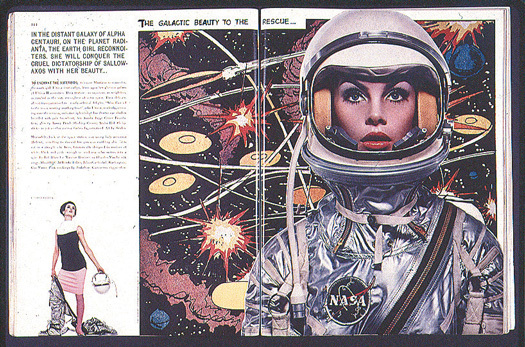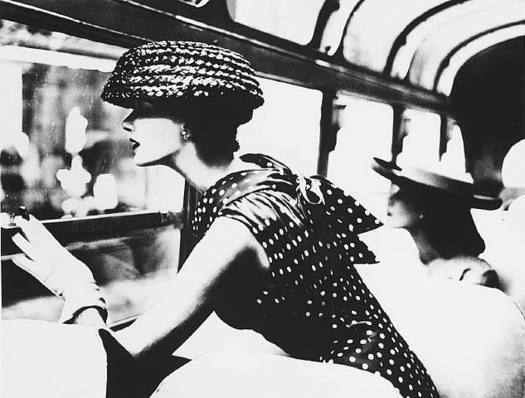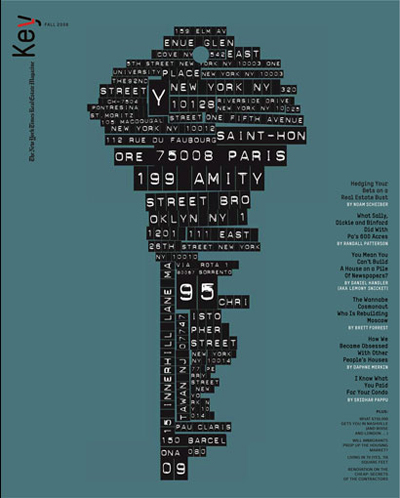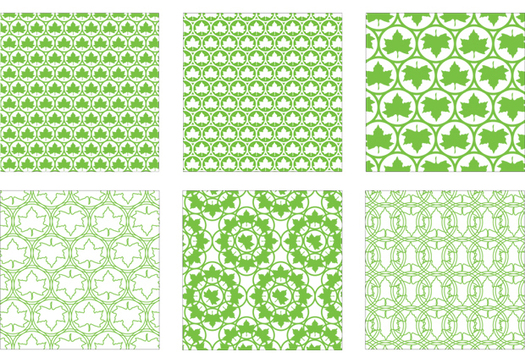
Ruth Ansel (via STEP Inside Design)
Last weekend I met Samira Bouabana and Angela Tillman Sperandio of Swedish design studio Hjärta Smärta, two designers who have decided, in the absence of other publishing on the topic, to start their own Hall of Femmes book series. The slim volumes, published by Oyster Press, include new interviews with a series of living female graphic design legends, plus surveys of their work. A public launch, sponsored by the Art Directors Club and the Consulate General of Sweden will be held tonight, June 28, 2011 at the ADC Gallery at 106 West 29th Street, New York.

Lillian Bassman (via Artfixx.com)
The first four volumes cover Ruth Ansel, legendary as co-art director of Harper's Bazaar while still in her 20s; Lillian Bassman, now best known for her influential photography but originally an art director for Junior Bazaar; Carin Goldberg who began her career at CBS under Lou Dorfsman and has been designing ads, albums, book covers and magazines ever since; and Paula Scher. I don't think I need to tell you who Paula Scher is. Bouabana and Sperandio freely admit it is a quirky lineup, heavy on the magazine designers, and make no claims to being historians. But books like theirs can spawn future dissertations, as well as fruitful debates about who should be included, and further the cause of partnership studies, in which different modes of practice are treated equally. A designer doesn't always have to have her name on the door to be important.

Carin Goldberg (via Carin Goldberg Design)
Future volumes will feature Mary Shanahan, best known for her work at Rolling Stone and collaborations with photographers; Tomoko Miho, who was called "the design world's best-kept secret" way back in 1993, when she won an AIGA Gold Medal; and Lella Vignelli, treated (as she rarely is) separately from her husband. I'd be interested to hear in comments about other female designers, still living and working, that you would put in your own Hall of Femmes as many of these names were new to me.

Paula Scher (via Pentagram)
I also couldn't help but think of this project in relation to some of the questions raised about the soon-to-be-on-sale Pioneers of American Industrial Design stamps. There have been many questions about the inclusion of only one woman on these stamps. I'm starting to have a knee-jerk to the knee-jerk reaction to the quest for gender parity.It is a goal, but it is not the only goal, and it's not always applicable in retrospect. (And the professions are so different! I don't remember one word about there being no women included in the Masterworks of Modern Architecture stamps in 2005.) I would argue as a historian that one in 12 is about right. These are the pioneers of the profession, one still not always hospitable to women, and the other two female industrial designers from mid-century I could think of are both still with us: Eva Zeisel and Florence Knoll. Ray Eames is, as we know, a tricky case. (Jane Thompson, mentioned in the link, is an editor and planner, as well as my co-author.)
Projects like the Hall of Femmes ensure that, when Pioneers of Graphic Design stamps are considered today and 25 years hence, there will be a much better ratio.


Comments [2]
http://fordhamvisualarts.blogspot.com/2011/05/center-gallery-design-exhibition.html
06.29.11
04:48
Despite job offers from Massimo Vignelli, Lester Beale and Saul Bass, Stauffacher Solomon remained outside the male dominated graphic design bubble. In 1977 she gave up her studio to study architecture. She taught at Harvard and Yale, and today, in her eighties, works as a landscape designer. She is perhaps best known for her Sea Ranch work.
http://www.barbarastauffachersolomon.com/
http://www.creativereview.co.uk/cr-blog/2011/february/barbara-stauffacher-solomon
06.29.11
05:50